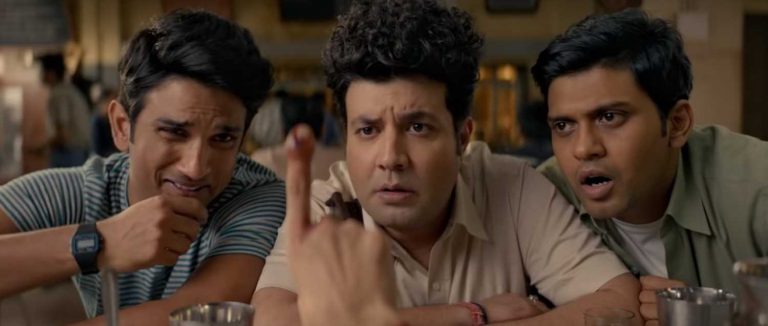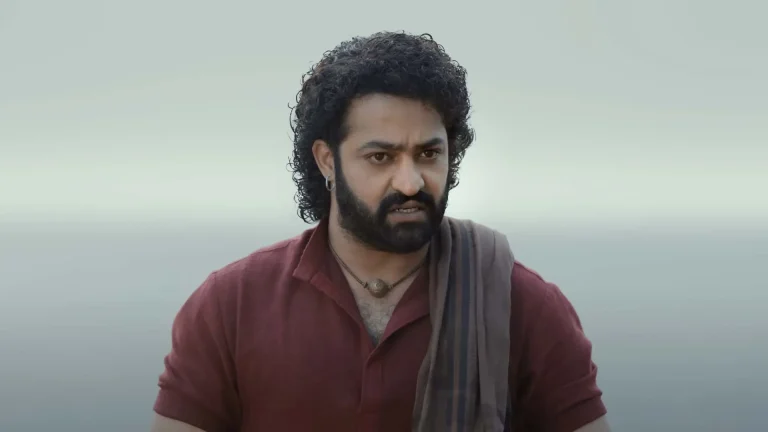Although it has now become a much-employed gimmick in contemporary film practices, the title of Carlos Conceição’s Tommy Guns (original title: Nação Valente) does not appear until the 27-minute mark. But in this case, this feels like a rather apt choice as post this mark, the film evolves into something quite different. The harrowing events portrayed before the title seem forgotten, like a trivial prologue, as the film begins following a completely different set of characters. This near-narrative amnesia does seem jarring at first. Still, those willing to stay for the meandering proceedings in the film would be rewarded with a rich look at the haunting legacy of colonialism in a way that defies expectations.
Set in Angola in 1974, a year before the nation’s official independence from Portuguese colonial rule, the film opens with Tchissola (Ulé Baldé), a young native woman working for a white nun (Leonor Silveira). Just as the locals are putting up a fight against the despotic Portuguese army, a young Portuguese soldier (Sílvio Vieira) seems to be aloof from the proceedings of the war. Soon, Tchissola crosses paths with the soldier in the woods, and they have sex. One might wonder if the film is heading toward a doomed romance between two people from opposite races and conflicting parties (Lagaan territory?) But, as Conceição eschews any romantic sentiment within the brutal colonial history, the fling between Tchissola and the soldier culminates in shocking violence. And this is when the title appears.
The film then cuts to a small army barrack, where some young soldiers have been stationed and are training under their martinet Corporal (Gustavo Sumpta). One fateful night, the young soldiers are forced to kill their cook and caretaker, Prata (Meirinho Mendes). The feat is reluctantly achieved by Zé (João Arrais), a young soldier who wishes to return to his mother, whom he hasn’t seen for a long time.
Since homecoming isn’t an option amidst an ongoing war, the Corporal rewards Zé by promoting him to a higher rank. The soldier’s monotonous training slog in the camp is upended by the arrival of a sex worker, Apolónia (Anabela Moreira), who the Corporal hires to satiate the budding lust of his young soldiers. Although charmed by Apolónia’s beauty, Zé’s encounter with her is anything but sexy—revealing Oedipal fissures in his psyche. As Apolónia relates jaw-dropping information, something from the grave rises to have its revenge finally!
To dwell further into the plot would be to spoil the Shyamalan-esque trick that Conceição gradually reveals in the third act, which is where the film’s thematic and narrative threads finally get tied up. However, leading up to that point, the film’s pacing feels like a drudge, which is made further jarring by what we are witnessing. The daily monotonous routines of the soldiers, their strenuous training sessions, and a regular screaming reprimand from Corporal seem to be going nowhere—a plot stranded in the middle of nowhere. But this temporal ennui, while still not well orchestrated, complements the film’s central thematic of the banality of colonialism and the perennial wars it produces.
The film’s original title Nação Valente (translating to ‘Brave Nation’), is a more explicit announcement of its satirical take on jingoism, especially as it corresponds with colonial politics. Our mostly nameless protagonist soldiers stay stationed at their regiment, radicalized and interpellated to serve their motherland. This maternalizing of a nation (a frequent invocation in Indian mythos as well) has a profound Freudian implication, which Conceição corporealizes in a sex scene that hammers the insidious horror of this invocation. Though abandoned in its first half, the film’s racial politics do come back from the dead (quite literally), giving the film a gothic realist template, which Conceição executes with finesse.
Like the other elements of the film, the slow and lingering cinematography really rewards itself in the extended final act, where our protagonists finally come face to face with Angola’s traumatic past. The film’s central performances from its young soldiers seem devoid of any discernible emotion, their faces perpetually curious, shocked, and confused—a directorial choice that also suits the film’s thematic core. Anabela Moreira portrays her character with a contrasting vivaciousness—her presence almost breathes a new life into the film. These juxtaposed performances are well-utilized and do earn the film its alienating end.
While many would see the existential conclusion of the film as a mark of despair, Conceição’s framing of the sequence against a purple-orange rising sun reeks of optimism for its hatchlings. It is not a wholly affirming end, as the horrors wreaked by colonialism will continue to linger.


![Posham Pa [2019] Zee5 Review – An unsatisfactory real-life documentation](https://79468c92.delivery.rocketcdn.me/wp-content/uploads/2019/09/Posham-Pa-Zee5-768x432.jpg)
![Chauthi Koot [2016] : The Fear in the Dog!](https://79468c92.delivery.rocketcdn.me/wp-content/uploads/2016/08/Chauthi3.jpg)


